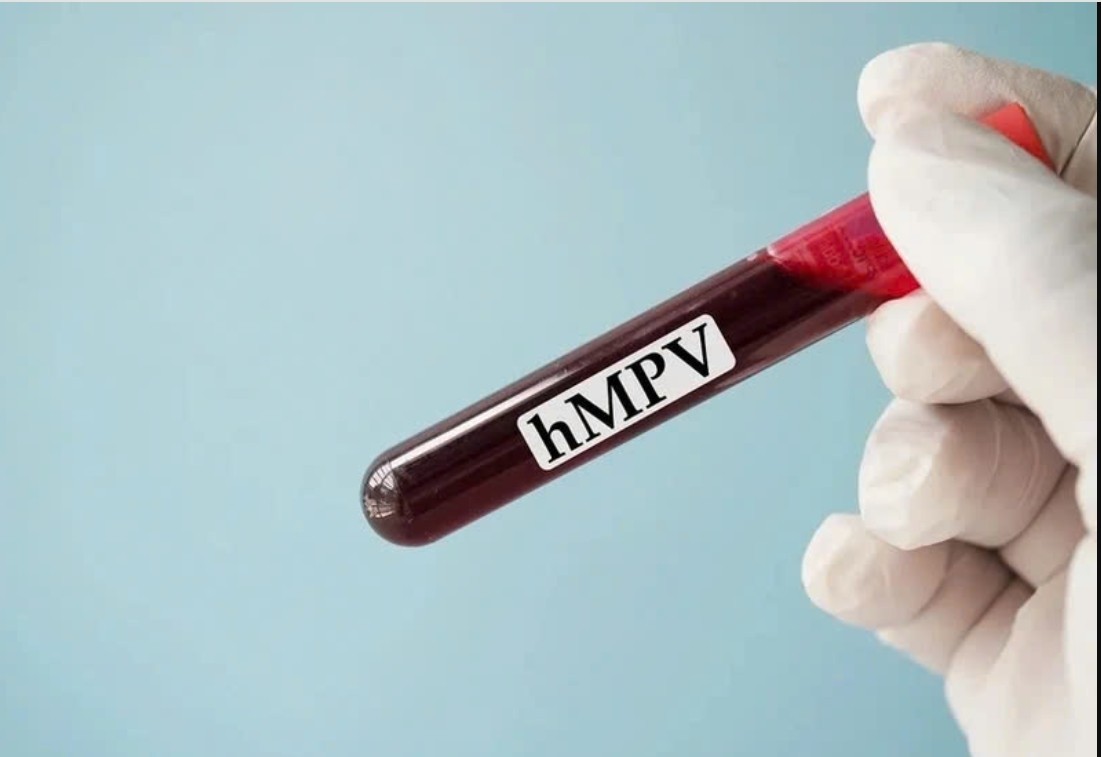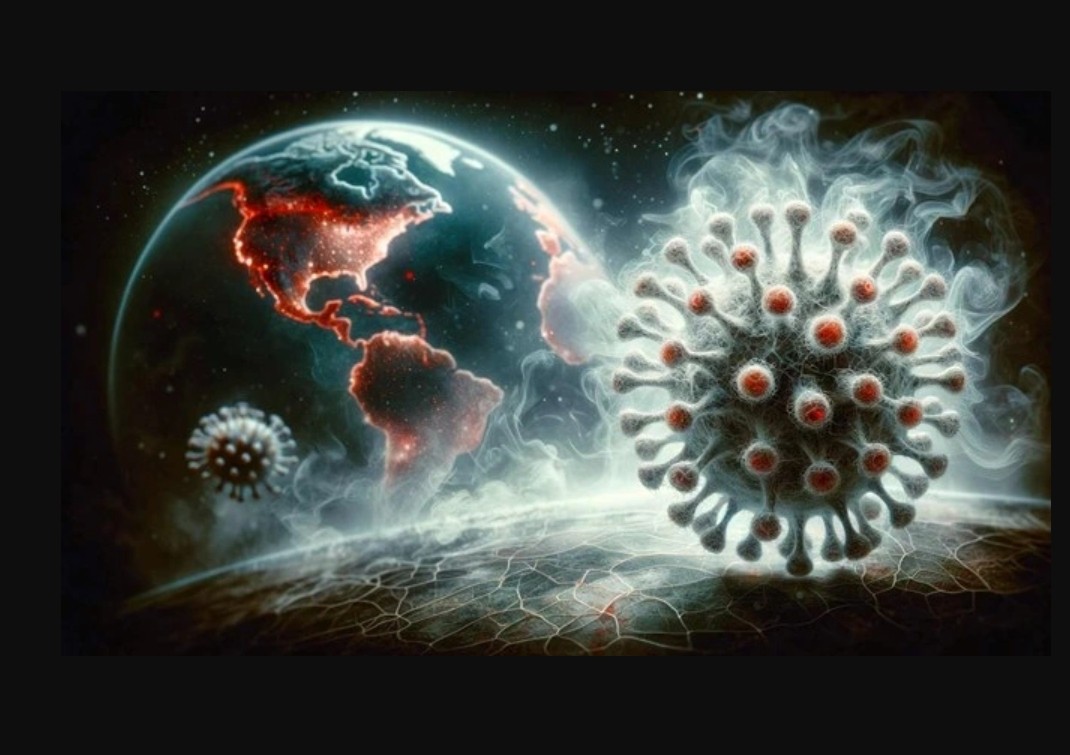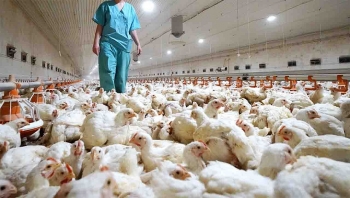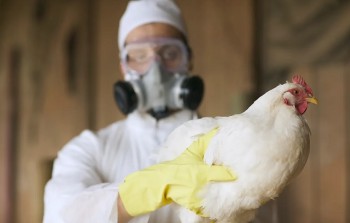What is HMPV: Could be the next big Global Health emergency like COVID-19?
Chinese health officials are reportedly monitoring an increase in cases of human metapneumovirus (HMPV).
 |
There is currently no evidence that the outbreak is out of the ordinary or that a new respiratory virus or illness has emerged in China.
A spokesperson for the World Health Organization (WHO) said data from China indicates "there has been a recent rise in acute respiratory infections" but that "the overall scale and intensity of respiratory infectious diseases in China this year are lower than last year."
Cases of HMPV have been steadily increasing in the U.S. since November 2024 with 1.94% of weekly tests positive for HMPV as of Dec. 28, 2024
1. What is HMPV?
Human Metapneumovirus (HMPV) is a respiratory virus that belongs to the Paramyxoviridae family, which also includes viruses like RSV (Respiratory Syncytial Virus) and the measles virus. It was first identified in 2001 and is a leading cause of respiratory infections, especially in young children, older adults, and people with weakened immune systems.
2. How Does HMPV Spread?
HMPV spreads through:
- Close Contact: Direct contact with an infected person, such as shaking hands.
- Respiratory Droplets: Coughing or sneezing releases droplets that can infect others.
- Contaminated Surfaces: Touching objects or surfaces with the virus and then touching your face.
It is most common in the late winter and early spring, similar to other respiratory viruses.
 |
3. Symptoms of HMPV
HMPV infections can range from mild to severe. Common symptoms include:
- Runny or stuffy nose
- Cough
- Sore throat
- Fever
- Fatigue
- Shortness of breath (in severe cases)
- Wheezing or difficulty breathing (especially in high-risk groups)
Severe cases can lead to complications like bronchiolitis, pneumonia, or even hospitalization.
4. Who is Most at Risk?
While anyone can contract HMPV, certain groups are more vulnerable:
- Infants and young children: Their immune systems are still developing.
- Elderly adults: Age-related immune decline increases susceptibility.
- People with weakened immune systems: Such as those with cancer, HIV, or on immunosuppressive therapy.
- Individuals with chronic lung diseases: Conditions like asthma or COPD exacerbate the effects of HMPV.
5. Diagnosis
HMPV symptoms often resemble those of the flu, RSV, or COVID-19, making diagnosis challenging without lab tests. Common methods include:
- PCR Testing: Detects the virus's genetic material.
- Rapid Antigen Tests: Used less frequently but can quickly identify the virus.
6. Treatment
There is no specific antiviral treatment for HMPV. Care is typically supportive and focuses on relieving symptoms:
- Rest and hydration: Critical for recovery.
- Over-the-counter medications: For fever, congestion, or cough.
- Hospital care: Severe cases may require oxygen therapy or ventilatory support.
Antibiotics are not effective, as HMPV is a viral infection.
7. Prevention
There is currently no vaccine for HMPV, but you can reduce your risk by:
- Washing your hands frequently with soap and water.
- Avoiding close contact with sick individuals.
- Disinfecting surfaces that may be contaminated.
- Covering your coughs and sneezes with a tissue or elbow.
- Staying home when you're sick to prevent spreading the virus.
8. HMPV vs. Other Respiratory Viruses
HMPV symptoms overlap with other viruses like RSV, influenza, and COVID-19. Testing is often needed to distinguish among them. HMPV tends to affect a similar demographic as RSV and often co-circulates with it during flu season.
9. Why is HMPV Important?
HMPV is one of the most common causes of respiratory infections worldwide, yet it is less well-known compared to RSV or influenza. Studies estimate that HMPV causes up to 10% of hospitalizations and 6% of outpatient visits for respiratory illnesses in children. Awareness of HMPV is critical for timely diagnosis and care, especially for vulnerable populations.
10. FAQs
Q: Is HMPV life-threatening?
A: While most cases are mild, HMPV can lead to severe complications like pneumonia or respiratory failure in high-risk groups.
Q: How long does an HMPV infection last?
A: Symptoms typically last 7–10 days, though severe cases may take longer to resolve.
Q: Is HMPV contagious before symptoms appear?
A: Yes, HMPV can be contagious for several days before symptoms begin and up to a week after they subside.
Q: Can you get HMPV more than once?
A: Yes, reinfections can occur, but subsequent infections are usually less severe due to partial immunity.
Q: Are there clinical trials for an HMPV vaccine?
A: Yes, researchers are working on developing vaccines and antivirals for HMPV, though none are currently available.






























